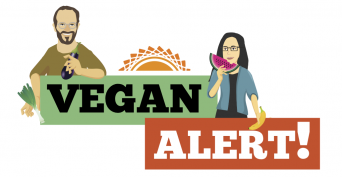
Vegan Alert: Ethical Clothing and Animal Parts in Everyday Products
Recommendations:
Eat Nice ravioli, LUHV burgers and vegan tuna salad, Miyoko’s cheese and butter
Norman and Jeannine tackle the topic of ethical clothing and the use of animal parts in everyday products. Not for the faint of heart!
J: I’m debating on whether to buy these vegan leather pants (or is it faux leather?) from Urban Outfitters.
N: Vegan and non-vegan materials in life is a whole other part of veganism.
J: Yes, it can be a touchy subject for some — sorta like the whole honey debate.
N: Yeah, but let’s save honey for another column.
J: We really don’t need animal parts in the manufacturing and production of our clothing. I have no need to wear a mink coat in the wintertime. Granted, I live in Philadelphia and not somewhere in the Arctic.
N: If I lived in the Arctic, I would see if I could move somewhere warmer.
J: So you wouldn’t choose to live in the Arctic.
N: The Arctic seems like a hostile environment for vegans.
J: Oh, but those cute polar bears! I wonder if there are any vegan-friendly restaurants in the Arctic.
N: Maybe Burger King will come out with a vegan blubber burger — the Blopper.
J: It wouldn’t surprise me. What do you think about clothes and veganism? Do you avoid leather?
N: I avoid new leather where I can, but I do wonder about animal materials as part of every day life, especially when I think of the natural world. If you came across a dead animal, and it had parts you could use, would you use them? For example, if you found animal bones, and you had a use for them, why not use them?
J: Interesting perspective. I’m currently reading a book called “The Last American Man” about Eustace Conway, an American naturalist, who lives off the land in North Carolina. He talks about using his entire kill and paying respects to the animal in a spiritual offering or prayer, which I think is the way it should be.
N: I guess it comes down to, are you contributing to animal suffering, and if you’re not contributing to the demand for animals to be killed, I don’t see how using parts of an already dead animal contribute to suffering. On the other hand, when I couldn’t find basketball shoes that weren’t made of leather, I bought leather ones.
J: Were they brand new or second hand?
N: I’ve done both.
J: So, you’re a part-time sinner?
N: Yep, guilty. I’ll have to pay the karmic consequences.
J: Aside from clothing that might come from animals, buying second hand or environmentally friendly is the best way to avoid fast fashion. Lately, I’ve been getting a lot of my clothes from clothing swaps, which is a fun way to get new clothes. I also trade favorites with friends.
N: Did you know tires are made with animal parts?
J: Yes; actually, I think you told me this before. And yes, I do own a car.
N: Bike tires, too.
J: Is it really necessary to use animal parts in the making of tires?
N: I don’t know. I heard stearic acid helps rubber hold its shape.
J: Who discovers these things? Who decides, “Oh, that beaver’s butt gland is going to make a great source for vanilla flavoring?” Who started boiling animal bones and skin in order to make gelatin to add to food or cosmetics?
N: Chemists.
J: Sick people.
N: I don’t know if all chemists are sick, although some of the products they come up with could be considered somewhat sickening. But they also come up with good products, like hydrogen peroxide.
J: That’s not the first thing that would come to my mind. Got anything else?
N: Refrigerant. How dependent are we on refrigeration for food?
J: Very dependent.
N: Without a refrigerator, you couldn’t have smoothies. What would you do without your smoothies?
J: I wouldn’t be very regular, I can tell you that.
N: This Thanksgiving you should give thanks to the chemists for your regularity. Bake a Tofurky in their honor; probably food chemists helped come up with it.
We’d like your feedback on plant-based products. Email veganalert@weaversway.coop to share your experience.
